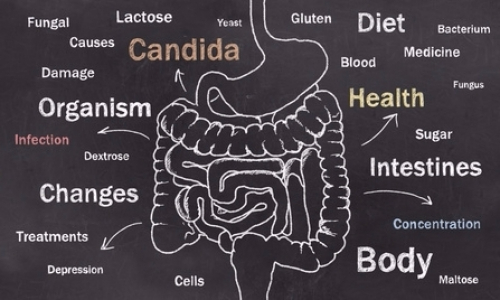 Are you suffering from bloating, gas, constipation, diarrhea, reflux, or a host of other symptoms associated with your digestion? One or more of these conditions could be the result of an imbalance in your gastrointestinal tract. To properly function, your gut needs neurological input, enzymes, hormones, and an enormous amount of bacteria to all work in harmony. When these functions are in tact, you're able to digest a variety of foods, absorb more nutrients, and have less symptoms. However, many of the things we do can disrupt this harmony and wreak havoc on our gut.
Are you suffering from bloating, gas, constipation, diarrhea, reflux, or a host of other symptoms associated with your digestion? One or more of these conditions could be the result of an imbalance in your gastrointestinal tract. To properly function, your gut needs neurological input, enzymes, hormones, and an enormous amount of bacteria to all work in harmony. When these functions are in tact, you're able to digest a variety of foods, absorb more nutrients, and have less symptoms. However, many of the things we do can disrupt this harmony and wreak havoc on our gut.
Our society has manufactured and engineered food laced with chemicals and hormones that our bodies can't process properly. We eat a diet of convenience and not health. We eat dinners out of boxes that contain GMO foods, artificial sweeteners, preservatives, additives, or a boat load of sugar. Add to this our heavy reliance on Rx prescription drugs, many of which negatively impact the GI tract, and you have a recipe for disaster. No wonder it takes months to get an appointment with the Gastroenterologist!
Many of these substances can irritate the bowel - leading to inflammation, immune response, and the unwanted "leak" of food proteins and pathogens into places they were never meant to go. When this happens, the immune system recognizes them as "foreign invaders" and responds with a reaction that causes more gas, pain, and inflammation. You can see how this viscous cycle continues... Especially at risk are those who take antibiotics, steroids, and oral contraceptives.
As all of these insults become more prevalent, we see more cases of leaky gut syndrome among people. Without making some changes to your lifestyle, your gut can't heal. To properly address IBS/SIBO/Leaky Gut, you must deal with each of the factors that influence your gut - infections (pathogens like yeast, bacteria, and parasites), enzyme insufficiency, inflammation, immune reactions, food sensitivities, psychological relationships to food, stress, and diet. We consistently see great results by using an individualized program that takes into account your diet, genetics, lifestyle, and history. In addition, we utilize advanced functional stool testing to find the cause of your symptoms. It's amazing how many people have had expensive scopes up both ends, but have never had a thorough investigation into the functional capacity of their intestines through stool analysis. We are here to work closely with you to get you on the road to recovery and enjoy foods that won’t make you sick. Don't suffer another day!

